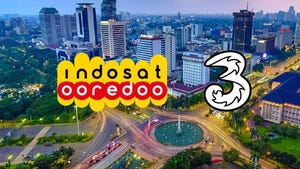Indian telcos band together on market reform
In a rare show of unity, India's telecoms operators are lobbying the government for a significant sector reform package that would ease taxes, spectrum payments and other levies.
August 20, 2021

In a rare show of unity, India’s telecoms operators are lobbying the government for a significant sector reform package that would ease taxes, spectrum payments and other levies.
The move, as reported in the Indian press, comes as Vodafone Idea struggles to stay afloat, weighed down by the burden of its dues. The latest twist in the tale on Thursday saw the telco defend itself against accusations that it has failed to pay its full Q1 telecom licence fee to the government.
“VIL has paid its licence fee dues for first quarter 2021-22,” the operator said in a statement to the Press Trust of India (PTI), following a report in the Times of India that it had fallen short to the tune of almost 1.5 billion rupees (US$20 million).
But although its financial position is significantly more precarious than those of its main rivals, Vodafone Idea is clearly not the only one feeling hard done by when it comes to Indian bureaucracy and state charges.
Via the Cellular Operator Association of India (COAI), the countries telcos are calling for change, it emerged this week.
The Economic Times was one of a number of Indian media outlets to have sight of a missive sent by the COAI to the government – the Department of Telecommunications (DoT), the finance ministry, and the Cabinet secretary, to be precise – backing a what the paper termed a huge revival package for the telecoms industry.
The association wants relief on the myriad levies telcos pay to the state, as well as calling for alterations to spectrum lease terms and the T&Cs governing the actual payment of statutory dues.
“[The] Indian telecom sector remains one of the most heavily taxed sectors. The Government needs to recognize that the current revenue sharing regime of around 32% of revenue outgo as taxes and levies is unsustainable and will always be detrimental to growth of the industry due to perennial lack of surplus cash to reinvest,” a segment of the letter, signed by S. P. Kochhar, Director-General of the COAI and dated 17 August, reads.
Based on the Economic Times’ report, spectrum appears to be the key focus of the operators’ requests. Amongst other things, they are asking the state to double the duration of all spectrum licences to 40 years from the current 20 at no extra cost, and to allow telcos up to 10 years to pay for awarded spectrum.
They have also asked for annual licence fees to be reduced to 2% of operators’ adjusted gross revenue from 8% at present, and are calling for a hefty reduction in spectrum usage charges (SUC), the paper explained.
Those are just the key points of the COAI’s demands; there are many others.
It seems unlikely that the government will simply agree to those requests, particularly given how heavily it relies on the telecoms sector for revenue, but they should at least serve as the basis for some negotiation. More than that, the letter demonstrates that although Vodafone Idea is making all the headlines at present, all the big players are feeling the pinch in India.
About the Author(s)
You May Also Like









.png?width=300&auto=webp&quality=80&disable=upscale)

_1.jpg?width=300&auto=webp&quality=80&disable=upscale)


.png?width=800&auto=webp&quality=80&disable=upscale)